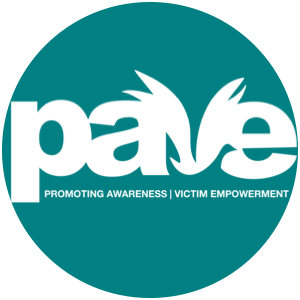Red Zone: Party Culture
College party culture denotes the practice of substance use, binge drinking, hazing, and much more. Partying in college with your friends can be fun, however, negative things can happen as well, including sexual violence. Partying and drinking are associated with many sexual activities. Nevertheless, what many people neglect or fail to recognize is that being intoxicated doesn’t give someone “free consent,” and consent can not be given by someone who is incapacitated. Intoxication is when someone is drunk, and incapacitation is a phase exceeding intoxication. Signs of intoxication may include stumbling and exaggerated emotions, whereas signs of incapacitation include confusion and passing out. By dictionary definition, consent is "permission for something to happen or agreement to do something." Sexual consent refers to consent to engage in sexual activity.
According to CSA study reports, more than half of incapacitated rapes reported by college women happen at parties, and the bulk of perpetrators were under the influence of alcohol. In the same article published by Econofact, data present that the presence of alcohol is involved in a large portion of football game-day partying. Football games increase reports of rape for women between the ages of 17-24 by an average of 28%. There is an increase in sexual assault reports in both home and away games, notwithstanding, home games attract crowds and tailgaters that can account for increases in assaults simply due to the additional population while away games give a more natural picture of the impacts of increase partying associated with the event. It is important to acknowledge that consent is clear and can be as simple as a verbal "yes." It is also important to know that alcohol and drugs can tremendously affect one's ability to communicate, hindering consequences of party culture, including sexual violence. Sexual engagement is a shared act, so approval from all parties should be mutual. MOVES is an easy acronym to remember when understanding consent in any situation. MOVES abbreviates mutual, ongoing, verbal, enthusiastic, and sober sexual consent. Consent should always be mutual, is necessary for any ongoing activity, should be verbally clear, furthermore your partner should be interested in participating, and is most cautiously engaged when sober. For more information on how to define, give, and receive consent, please visit PAVE University to take and get certified in PAVE’s Consent course!
Party culture poses multiple barriers to reporting sexual violence to Title IX and the police. Many students who attend parties either on or off-campus are consuming alcohol underage. This has the potential to make survivors fear that if they report their assault, they will face punishment for drinking illegally. Moreover, party culture during the Coronavirus pandemic has brought on new barriers to reporting. Many colleges and universities across the United States reopened in-person for their Fall semester; however, their reopening plan included many changes to campus to help stop the spread of COVID-19. To follow guidelines, such as with social distancing and gatherings, many schools have strict guidelines that state no student may host or attend parties both on campus and off. Schools are strict with these new guidelines and many have adopted conduct policies such as the removal of students from campus or even expulsion for hosting or attending a party. This creates a new barrier to reporting if survivors were assaulted at or after a party. There is new fear for a survivor that if they report their assault, they will be punished severely for attending a party. Many schools have released no information on if survivors are exempt from penalties if they come forward with their assault. With many schools remaining open for the Fall semester and plan to stay open for the Spring with the same guidelines, this could create a campus culture where sexual violence becomes even less reported than it already is.
If you or someone you know is a survivor of sexual violence, please reach out! PAVE is here to support you.
